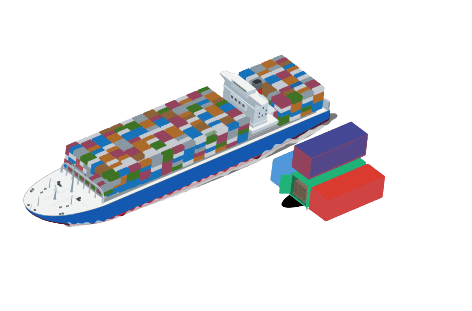Technology in foreign trade proves to be an increasingly important ally as it transforms the work of companies that use technological tools to automate operational processes and optimize delivery time to the end consumer, adding value and reliability to the business partnership. Additionally, it is highly pertinent to mention that technology has reached customs agencies to ensure that international trade entrepreneurs do not take risks due to lack of updating in their work, as well as to modernize procedures for proper alignment of import and export processes.
In this article, we will address essential topics for technological management in your company, including the benefits and opportunities that innovation brings, as well as the challenges and issues that entrepreneurs face when resisting the necessary technological investment to meet their demands. Keep reading until the end and find out more! You’ll be surprised.
Technology in foreign trade to facilitate daily operations
We are already aware of the complexity of processes and the documentary bureaucracy that occurs in international trade operations, varying in each state and even in each country. Thus, we can rely on technology in foreign trade applied in all operational stages, highlighting the technological advances that the Brazilian Federal Revenue has been implementing to simplify and modernize customs procedures.
It is also important to emphasize how technology is essential for maintaining customs, fiscal, and internal compliance, ensuring that operations are carried out with greater efficiency, intelligence, and minimizing foreseeable risks. The way business is conducted in the global scenario is being shaped by the increasing adoption of cutting-edge technologies, transforming international trade through rapid changes and innovations.
As a fundamental pillar in the global economy, technology in foreign trade drives business growth in recent decades through trends in digitization, sustainability, and transformation in the supply chain, offering significant opportunities for both countries and entrepreneurs, making them key players in international trade.
Tradetech: technology at the service of foreign trade
In the current global context, which is as challenging as it is vulnerable, well-implemented technology in foreign trade helps foresee opportunities and challenges in the sector. Due to uncertainties caused by various economic and geopolitical factors that occur at the moment, trade and production can be constantly affected.
In our country, considering some internal factors such as a complex tax system and difficulties in infrastructure and logistics, are causes that greatly impact the sector. External factors, such as the health crisis followed by the Russia-Ukraine war, also make political understanding difficult.
Therefore, it becomes essential to rely on technology support to ensure that commercial flows are effective, inclusive, and equitable. In fact, tradetech aims to provide a set of technological and innovative solutions to co-create norms and policies that incorporate emerging technology in foreign trade as disruptive tools that change the business model, reconfigure the value chain, and help companies achieve sustainable results.
Startups and entrepreneurs: challenges and opportunities
With the reduction of various barriers, advancements in technology in foreign trade, globalization, and many other changes in the world’s economic landscape, startups perceive several business opportunities in this fertile ground of international trade. However, we are aware that challenges exist and are specific to this market segment, which is in continuous transition and evolution.
Therefore, it is worth highlighting the main opportunities and difficulties that entrepreneurs will encounter to strengthen themselves and ensure the success of their business in such a competitive scenario.
Opportunities in foreign trade for startups:
- Access to larger markets;
- Use of technology;
- Networking and international partnerships.
Challenges include:
- Logistics and larger production scale;
- Significant investments;
- Bureaucracy involved according to each country.
The plight of companies that do not invest in technology in foreign trade
Finally, we cannot fail to emphasize that the lack of technology in foreign trade can hinder the growth of companies in their international operations. After all, many controls are already computerized to avoid greater losses and errors.
In addition to non-conformity with advanced technology processes, not having innovation as an ally of operations will result in rework because there will be no proper communication and integration among responsible parties, as well as a lack of transparency among stakeholders, making quick and assertive decision-making impossible.
Moreover, there will be an increase in operational risks and average import and export time, not to mention the growing fines and penalties, among other reasons why investing in technology should be done as soon as possible.
In summary, we aim to present the idea of technology in foreign trade in this article as a determining and essential factor for business management so that your company complies with the new customs processes, in order to increase the efficiency and credibility of your business as a whole.
Cheap2ship is a startup that offers an international freight management platform, using cutting-edge technology, so that shippers can make real-time quotations, following the negotiation step-by-step from any electronic device. Thus, bureaucracy decreases, and the demand for emails, messages, and lack of response disappears, optimizing your work time and bringing greater efficiency in choosing the best price for any modal for your cargo transportation operation.
Count on us and our team of experts and come to learn more about our platform and all its technological tools.

